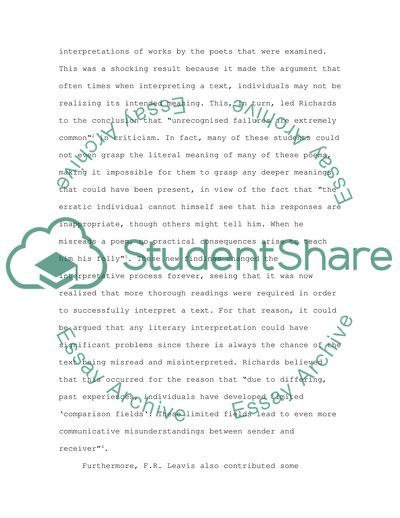Cite this document
(Practical Criticism Essay Example | Topics and Well Written Essays - 1500 words, n.d.)
Practical Criticism Essay Example | Topics and Well Written Essays - 1500 words. https://studentshare.org/literature/1710493-practical-criticism
Practical Criticism Essay Example | Topics and Well Written Essays - 1500 words. https://studentshare.org/literature/1710493-practical-criticism
(Practical Criticism Essay Example | Topics and Well Written Essays - 1500 Words)
Practical Criticism Essay Example | Topics and Well Written Essays - 1500 Words. https://studentshare.org/literature/1710493-practical-criticism.
Practical Criticism Essay Example | Topics and Well Written Essays - 1500 Words. https://studentshare.org/literature/1710493-practical-criticism.
“Practical Criticism Essay Example | Topics and Well Written Essays - 1500 Words”. https://studentshare.org/literature/1710493-practical-criticism.


